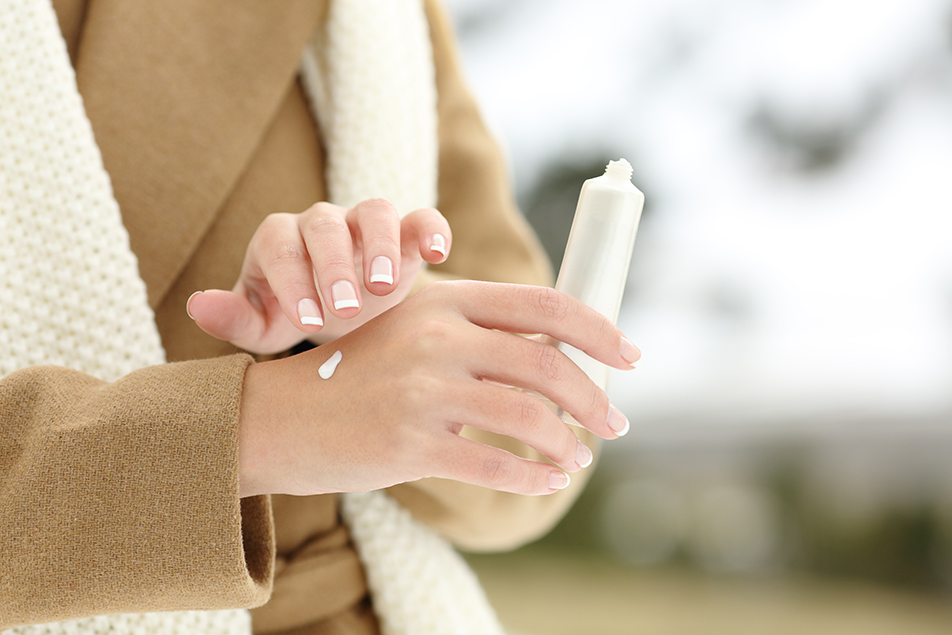Winter is here, with her sub-zero temperatures and unforgiving wind. As we start to bring out the various lotions and potions we typically employ this time of year, Dave Baker, PA, PPG Premier Dermatology & Skin Care, offers more on how to combat seasonal dry skin. (Hint: It starts in the shower.)
Snow, ice and cold air trigger everyone to turn up the furnace and bundle up. Although these harsh conditions can make us feel like we’re freezing to the bone, it’s actually our skin that takes the brunt of it. The cold, dry air outside and warm, dry air inside lead to increased moisture loss from our skin. In addition, long, hot showers also lead to increased breakdown of our normal skin barrier. These factors lead to chapped lips, rough elbows and dry itchy skin all over our bodies.
Skin care for dry skin
Here are a few tips to help maintain a healthy skin barrier and keep your skin moisturized this winter:
- Although this can be difficult for some, work on shortening the time you are in the shower or bath to 10-15 minutes or less and use warm water instead of hot water. Although the hot water feels great at the time, it will damage your protective skin barrier, causing significant dryness.
- Avoid harsh antibacterial soaps and use gentle cleansers and unscented soaps instead.
- Moisturize with cream (from a jar) instead of a lotion, and apply the cream all over immediately after showering to trap the moisture in your skin and prevent it from evaporating.
- Moisturize throughout the day as needed, but at least 2-3 times a day.
- If you do have to go out in the cold, make sure you cover all areas of exposed skin by wearing gloves, a scarf and a hat.
- A room or home humidifier can help maintain the humidity in the home where your skin is exposed the most.
- For chapped lips, use a lip balm that contains an SPF of at least 30 to protect from both the dry conditions and ultraviolet rays that can still penetrate through clouds on overcast and snowy days.
- Always apply a gentle facial moisturizer with at least 30 SPF every day.
While these recommendations will be enough for most people to keep their skin healthy, some may have an underlying skin condition that requires a more aggressive approach to maintain healthy skin, including prescription medications. If you suspect this is the case, schedule an appointment with your dermatologist to work on a treatment regimen.





